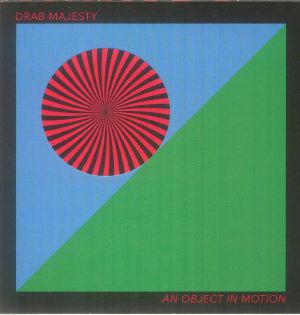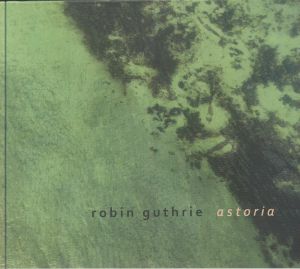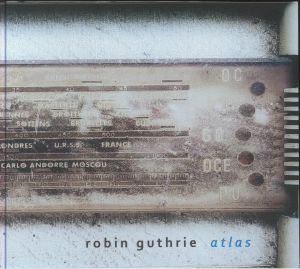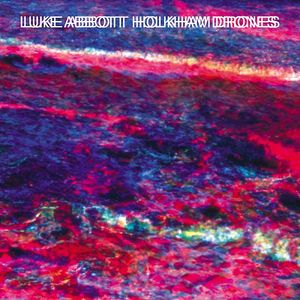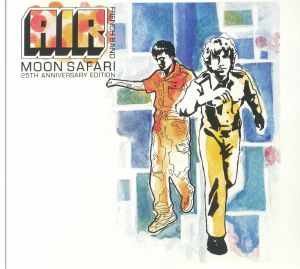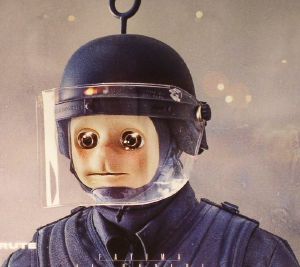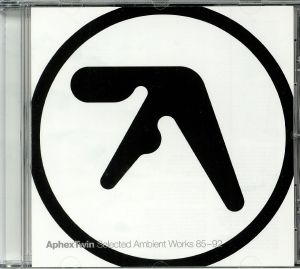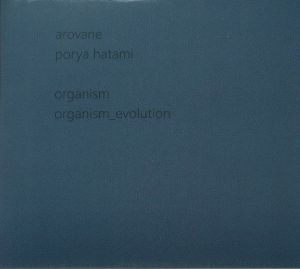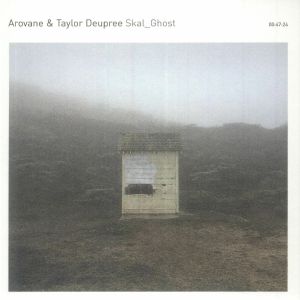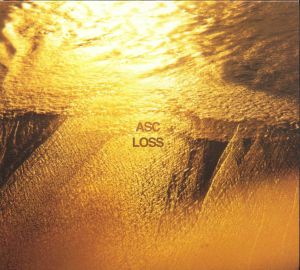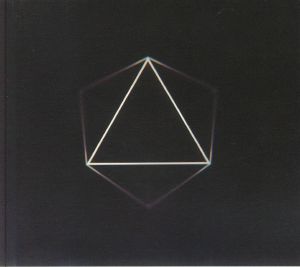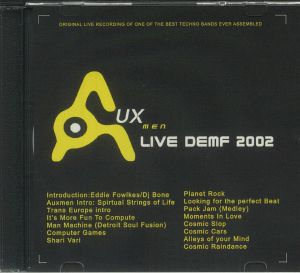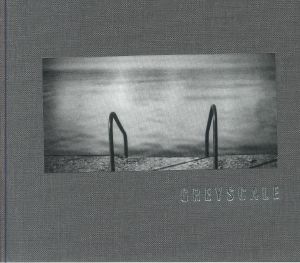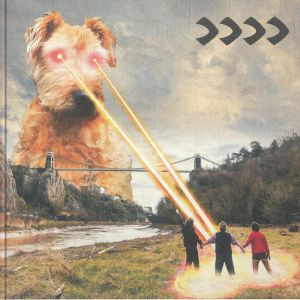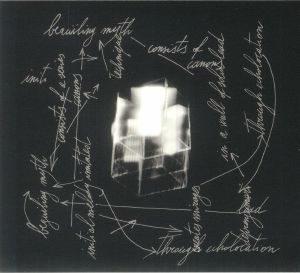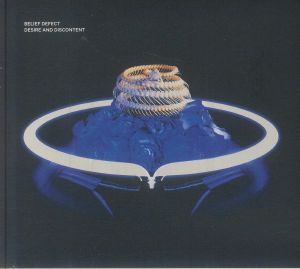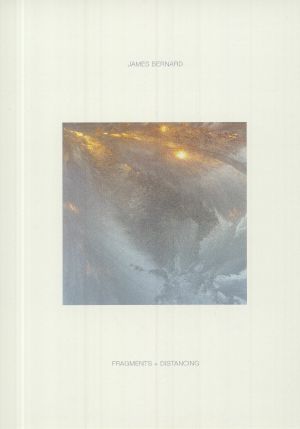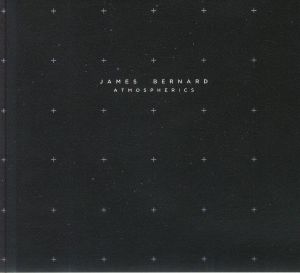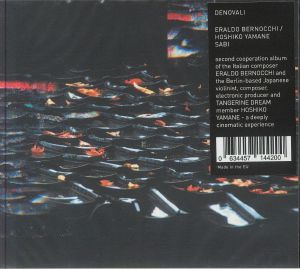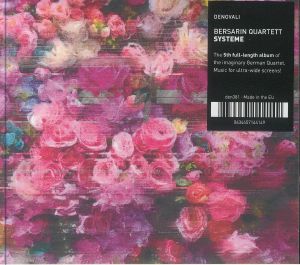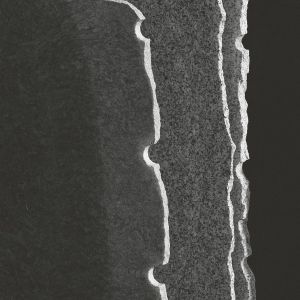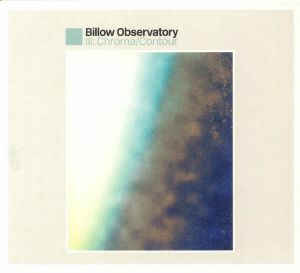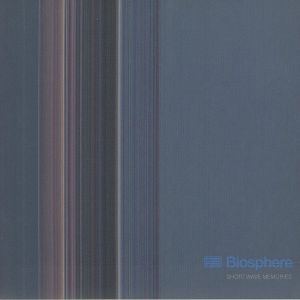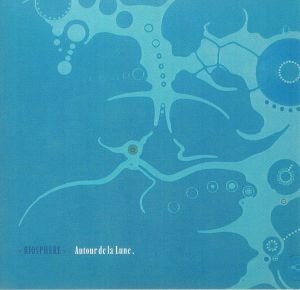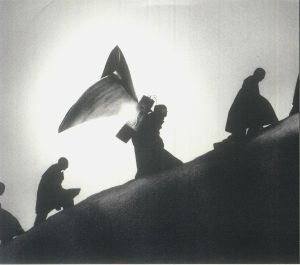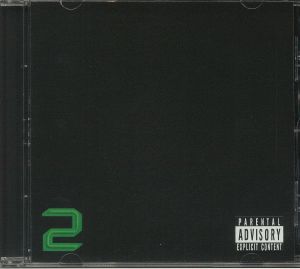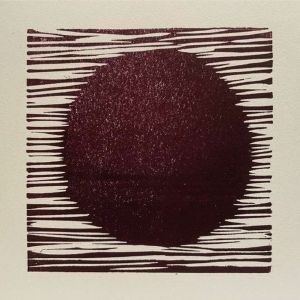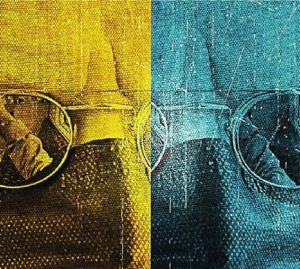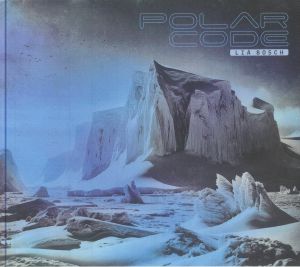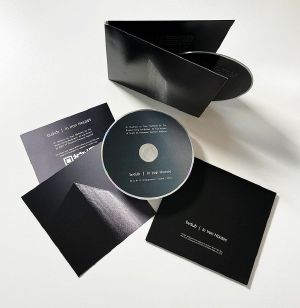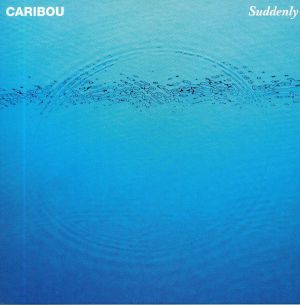Back catalogue: Leftfield
Juno's full catalogue of Leftfield
单曲
Review: Boom! Finally another reissue of Boards Of Canada's seminal Hi Scores LP from 1996! Along with the likes of Aphex Twin, LFO and Squarepusher, these guys have helped to define how we see electronic music today and this particular LP is arguably their most complete when it comes to the dancefloor. The title track is a twisted, floaty bindle of breaks and beats, but it doesn't end there. Tracks like "Nlogax" are inherently Detroitian in nature thanks to the bleepy drum machines inside, and all we can say is that if you haven't laid hands on this album yet, you shouldn't miss the opportunity to cop it now. It's still so relevant and contemporary, it hurts.
… Read morePlayed by: Juno Recommends CD Albums
in stock $12.62
Review: Described by their label, Dais, as "a stirring new chapter" in their musical story, 'An object of Motion' has its roots in a coastal break main man Deb Demure made back in 2021. It was material recorded there, largely using a vintage, bowl-shaped 12-string guitar, that formed the basis of the four-track mini-album. These recordings were then expanded on with help from collaborators Rachel Goswell (Slowdive), Justin Meldal-Johnsen and Ben Greenberg. It's a decidedly psychedelic set all told, with Demure and company blurring the boundaries between neo-folk, psychedelia, the Cure, shoegaze and the sort of saucer-eyed, turn-of-the-90s bagginess associated with the Stone Roses. Most impressive of all, though, is 'Yield To Force', an undeniably cosmic, layered and effects-laden instrumental that ebbs and flows over 15 magical minutes.
… Read more in stock $14.02
Review: Cocteau Twins' musical mastermind Robin Guthrie has produced some terrific solo records over the course of his career, frequently delivering material that joins the dots between ambient, ethereal soundscapes, shoegaze and the more immersive end of the soundtrack spectrum. 'Astoria' is the latest volume in the Scottish multi-instrumentalist and producer's ongoing EP series (its predecessor, 'Mountain', dropped in September). It's another typically gorgeous and enveloping affair in which effects-laden guitar motifs, gaseous ambient chords, gentle rhythms, ghostly aural textures and slowly shifting melodies combine to create instrumental sound worlds of rare beauty (if not sonic clarity - Guthrie's use of reverb and delay is liberal, which adds to its atmospheric nature but adds extra layers of attractively wide-eyed haziness).
… Read morePlayed by: Juno Recommends Ambient/Drone
in stock $10.66
Review: Robin Guthrie's Atlas is a four-track EP showcasing new instrumentals that gently reintroduce listeners to his distinctive world. Known for shaping genres with his production and signature guitar sounds, Guthrie famously co-founded and produced for Cocteau Twins. With over four decades of musical influence, he's produced, remixed, and collaborated across various projects, from instrumental albums to movie soundtracks and Atlas serves as a tantalising preview of what's to follow later this year, namely more of Guthrie's evocative sounds that will no doubt continue his legacy of pushing boundaries.
… Read morePlayed by: Juno Recommends Ambient/Drone
in stock $10.66
专辑
Review: We've been swimming in Luke Abbott's debut album since it landed on our desks this week. As one would expect from a member of the vaulted Border Community family, it's a record steeped in melody, gentle yet strong, perfect for at-home headphone escapism. Abbott is a master of kosmische, and on Holkham Drones he creates a lush soundscape that is psychedelic and richly textured, with similarities to be found in the work of modern contemporaries James Holden, Allez Allez and Four Tet. "Whitebox" is an intense swirling track that showcases the Norfolk producer's love of analogue equipment, while "Trans Forest Alignment" starts like a moodier version of LCD Soundsystem's "Losing My Edge" before submerging itself beneath a sea of melodic keys and atmospheric synth washes. Everything here is assembled using the most delicate of sounds, from the moody vibe of "Sirens For The Colour" through to "Brazil", which shines like a beacon of hope, while the ambient fuzz of "Dumb" offers one of the album's most moving moments. One of the finest releases of 2010 without a doubt.
… Read more in stock $7.29
Review: "It's like painting with button and sliders... Melting and dripping, seeping yourself liquid into the machinery." So said Darren Cunningham when discussing the creation of R.I.P, his long awaited follow up to Splazsh. It's a compelling image that works in practice too. R.I.P creates microcosmic sound worlds within each track: "Holy Water" for instance tumbles in on itself in a melange of shimmering sine wave droplets, while the pitch shifted waves of "Tree Of Knowledge" seem to inhale and exhale like a living being, crumpling inwards on itself to repeat the same motion ad infinitum. And although it uses much the same, occasionally abrasive sonic building blocks as Cunningham's been developing for many years, the pastoral tones of "Uriel's Black Harp" and the Alva Noto styles of "Jardin" make R.I.P a surprisingly graceful album. It may not be techno as many will know it, but Cunningham has never made techno in the traditional sense anyway - and it's clear on listening to R.I.P that he's only just beginning to realise the musical forms that have been swarming inside his brain for years.
… Read more in stock $10.37
Moon Safari (25th Anniversary Edition) (limited 2xCD + Blu-ray)
Cat: 505419 7906770. Rel: 14 Mar 24
Review: When Air's Moon Safari first landed on terra firma in 1997, it was a revelation that flipped the French touch boom on its head. Swapping discoid thrust for sensual lounge, Nicolas Jean Godin and Jean-Benoit Dunckel kept a certain sophisticated nostalgia in their sound which tracked with their compatriots, but they absolutely weaved their own spell with it. The hits caught on for good reason, from the dirty grind of 'Sexy Boy' to the swooning romanticism of 'All I Need' featuring Beth Hirsch on vocals, but the moments in between merely added to the spectacle, lodging Air in the hearts and minds of a whole generation. This special anniversary edition adds a second disc of B-sides, remixes and session tracks, plus a Blu-ray disc featuring the iconic videos and a documentary from the Moon Safari era.
… Read morePlayed by: Juno Recommends Downtempo
in stock $21.29
Review: It has been almost two years since the Fatima Al Qadiri's debut LP dropped on Hyperdub, and we're as excited now for her follow-up as when we'd heard the first one. This is because Qadiri provides us with everything to satisfy our need states; through an awry and granular sound, the artist is able to transmit a whole spectrum of moods and feelings. This makes Brute an album for anyone, and it can be enjoyed both by the party-goers and the moody corner-dwellers. The intro is a detached sort of skit that distances itself form any sort of shape, but so we're dropped in a post-futuristic world of pseudo grime, broken, detuned techno and tropical electronica. To be honest, there would be no other place for it than the mighty Hyperdub. Big release.
… Read more in stock $10.08
Cat: BT 124CD. Rel: 31 Oct 24
Review: Black Truffle's tenth-anniversary reissue of Oren Ambarchi's Quixotism brings renewed attention to this monumental 2014 release. Originally recorded with collaborators across Europe, Japan, Australia, and the U.S., Quixotism unfolds as a single, long-form piece split into five sections. Anchored by Thomas Brinkmann's steady, double-time electronic percussion, the piece gradually evolves from orchestral depth and subtle piano motifs (courtesy of John Tilbury) to a striking polyrhythmic shuffle, culminating in the final passages with U-zhaan's masterful tabla. Throughout its journey, Ambarchi weaves guitar textures that shift from clipped, sparse tones to lush, reverberated layers, creating an expansive yet cohesive sonic landscape. The interplay of acoustic and electronic elementsiranging from the Icelandic Symphony Orchestra's grandeur to Crys Cole's intimate contact-mic texturesiguides the listener through an otherworldly audio experience. Influenced by Cologne techno, Eliane Radigue's long-form compositions, and the fluidity of improvisation, Quixotism shifts in subtle, dreamlike transitions. Remastered by Joe Talia, this edition offers a clearer perspective on the album's intricate sound design, reaffirming its relevance while pointing forward to Ambarchi's future works like Hubris and Hence.
… Read more in stock $14.02
The AMORPHOUS ANDROGYNOUS / VARIOUS
Cat: CDTOT 78. Rel: 25 Nov 20
Future Children - "The Lutine Bell"
Regal Worm vs The Amorphous Androgynous - "Gunter & His Evil Soul Sacrifice Orchestra Play Back Mass A Gogo"
Cobalt Chapel - "Hymortality" (part 1)
The Amorphous Androgynous - "Physically I'm Here, Mentally Far, Far Away" (Excerpt)
Higher Peaks - "In Madness Reigns"
Cobalt Chapel - "Hymortality" (part 2)
Las Trompas De Falopium - "Somos Inmortales Nos Persuadimosi"
Stoned Freshwaters - "Everything Is Easy With A Little Persuasion"
Atomic Simao - "Gravity Bong"
Richard E Further Out - "Our Dominion"
Steve Cobby’s Sweet Jesus - "The Persuader"
The Amorphous Androgynous - "Synthony On A Theme Of Mortality" (part 2)
The Flying White Dots - "Counting Down The Time" (part 2)
The Cuckoo Clocks - "Tomorrow, Time & Immortality"
Review: This set from the Future Sound of London's psychedelic rock-inspired Amorphous Androgynous project is extremely hard to pin down, thanks in no small part to its' boundary-blurring format. Officially a set of remixes of one song - 'We Persuade Ourselves We Are Immortal' - the album is formatted as a seamless, mixtape style musical journey in which recurring musical themes (think melodies, choral vocals, lyrical phrases and orchestral arrangements) slip in and out of ambient soundscapes, dub-influenced electronic beats, psych-rock workouts, crackly samples, field recordings and Lord knows what else. It features a stunningly epic cast of guest musicians, producers, remixes and obscure psychedelic bands, with the result being a brilliant collaborative work that sounds a little like a 21st century rock opera.
… Read more in stock $13.44
I Swear, I Really Wanted To Make A "Rap" Album But This Is Literally The Way The Wind Blew Me This Time
The Slang Word P(*)ssy Rolls Off The Tongue With Far Better Ease Than The Proper Word Vagina Do You Agree?
That Night In Hawaii When I Turned Into A Panther & Started Making These Low Register Purring Tones That I Couldn't Control _ Sh¥t Was Wild
Review: Andre 3000s 87-minute flute epic makes it onto a double CD courtesy of Sony. One of the most intriguing, enveloping and therapeutic LPs of 2023, New Blue Sun sees the Outkast veteran drop the mic in favour of myriad flutes, both digital and acoustic, creating a loose, patient album which sounds somewhat like the lovechild of Jon Hassell and Ras G. The whimsically named tracks unfold in a languid dream sequence, feeling improvised but focused, sparse yet dense, and deeply emotive throughout. 3000's far-from-virtuosic flute performances add to the charm and unpredictability of the album, and ensure that the overwhelmingly gentle music doesn't veer too far into vapid new-agery. One for yer pensive off-days!
… Read more in stock $19.05
Review: Some 25 years after delivering his debut 12", Richard D James hasn't lost the ability to thrill or inspire. By his obtuse standards, the material that makes up the surprise Cheetah EP is actually rather laidback and melodious. "Cheetah2 (LD Spectrum)", for example, sounds like a slow house jam written by robots, while the even deeper "Cheetah7B" shuffles along in a metronomic fashion, seemingly oblivious to the increasingly aggressive World at large. Of course, those trademark skittish IDM rhythms are present and the Cornishman has thrown in a couple of hazy ambient cuts for good measure.
… Read morePlayed by: Lo Shea
in stock $11.49
Review: By 1996, Richard D. James, aka Aphex Twin, had a prolific career at 26. He co-ran Rephlex Records, signed with Warp Records, and had multiple releases and MTV-aired music videos. His fame surged with the 1997 Come to Daddy EP and Chris Cunningham-directed music videos. James was constantly creating music, describing his output as endless. The Richard D. James Album marked a turning point, featuring his creepy distorted smile on the cover, solidifying his bizarre persona. Despite his unassuming demeanor, James's music was wildly innovative. Raised in Cornwall, he preferred making music in solitude, viewing himself as "some kid mucking around in his bedroom." Departing from previous methods, the album was entirely computer-made, reflecting recent work. James aimed for accessibility with hidden complexity, making the music engaging yet intricate. The album featured more structured songs with clear melodies, such as 'Girl/Boy Song,' blending orchestral sounds with drum solos. Symphonic elements persisted, creating emotionally resonant moments. Tracks like '4' and 'Fingerbib' showcased his ambient sensibilities and inventive sounds. Vocals, heavily altered, added a unique touch.
The album combined delicate symphonics with intense beats, exploring drill ‘n’ bass. It had a cohesive vision, evident in tracks like 'Cornish Acid' and 'Peek 82454201.' Named after his deceased brother, the album held personal significance, subtly influencing its depth and emotion.
… Read moreThe album combined delicate symphonics with intense beats, exploring drill ‘n’ bass. It had a cohesive vision, evident in tracks like 'Cornish Acid' and 'Peek 82454201.' Named after his deceased brother, the album held personal significance, subtly influencing its depth and emotion.
Played by: Juno Recommends Experimental
in stock $14.57
Review: In line with the timely reappraisal of all things R&S related, the resurgent Apollo have seen the opportunity to bring one of their most celebrated records back for another round on CD. Aphex Twin's ambient recordings mature magnificently with age, sounding ever richer and more emotive as the rest of electronic music continues to play catch up all around. From the gentle breakbeats of "Xtal" to the aquatic techno lure of "Tha", the airy rave of "Pulsewidth" to the heartwrenching composition of "Ageispolis", every track is a perennial example of how far ambient techno could reach even back then. It's just that no-one quite had the arm-span of Richard D. James.
… Read more in stock $13.17
Review: Last month, experienced experimentalists Arovane and Porya Hatami released their latest collaborative album, Organism_evolution. Billed as a "development" on the creepy, clandestine and hugely atmospheric vibes explored on last year's Organism, the set expanded on the original's fluttering, otherworldly ambience - created largely by layering and processing their own field recordings - with the addition of more electro-acoustic elements and a wider range of synthesis techniques. Here, you can judge the results for yourself, as both albums get bundled together on CD for the first time. If you take the time to sit and listen to both discs in sequence, you'll not only spot the subtle shifts in the pair's collective sound, but also feel like you're on a particularly memorable journey through a psychedelically enhanced imagination.
… Read more in stock $25.78
Review: German artist Uwe Zahn (Arovane) and 12k's Taylor Deupree join forces for the first time, having first become acquainted through a shared love of music tech. As Zahn recalls: "After a long email conversation, Taylor and I came up with the idea of recording an album only with sound sources from the Nonlinear Labs C15 synthesizer that we both own. The first sketches were made with an exchanging of C15 patches and a constantly growing shared sound pool that led to the structure of the first songs. Preferring to work in person, but hampered by the pandemic, we resorted to sending projects back and forth. and developed an organic method that inspired and excited us."
With a shared love of experimentation, the two partners took on different roles, Deupree offering the rough diamonds, organic loops and mixing skills, while Zahn took on the more fragile, miniscule sound design. Described as "deep and haunting", with massive worlds compacted into each sound and movement.
… Read moreWith a shared love of experimentation, the two partners took on different roles, Deupree offering the rough diamonds, organic loops and mixing skills, while Zahn took on the more fragile, miniscule sound design. Described as "deep and haunting", with massive worlds compacted into each sound and movement.
Played by: Joachim Spieth
in stock $14.86
Review: James Clements (ASC) has been one of the most highly regarded artists in ambient, ambient techno and IDM scene since his evolution into the sound about 15 years ago. His ability to create deep soundscapes over lush beats and atmospheres come from his liquid drum n bass background prior to working with more cinematic tracks. ASC is back with a new release and it finds a home at the Past Inside the Present stable where he had put out a few EPs on the last couple years. This haunting and beautiful release Loss, explores various moods and atmospheres to great success. Tracks like the amazing and spacious 'Sensory Disintegration' to the poignant 'What More Can Be Said' which adds a lush airspace to a stunning piano piece. Some soundscapes are majestic and triumphant while others are minimal and then foreboding. New age and ambient fans will rejoice after hearing this magical album. Available in limited quantities so act quickly! Comes with download code inside.
… Read more in stock $10.66
Kairos (hand-numbered CD limited to 200 copies)
Cat: PITP 52CD. Rel: 12 Sep 24
Review: Berlin trio AUSKLANG are back with Kairos, a second superb album that builds on their last effort, 2020's Chronos, also on Past Inside the Present, 2020. It finds the trio of Fabian Koppri, Benjamin Sohn, and Simon Ansing play with concepts of time and entropy across eight movements that balance melodic post-rock and layered ambient soundscapes. It's a deceptively complex blend of glitching electronics, drums, bass and guitar with classically inspired orchestrations that makes for something as immersive and grand as it is beautiful. As the summer fades and autumn arrives, this richly rewarding album is sure to prove a great companion as we spend more time indoors.
… Read more in stock $12.62
Review: Back in 2002, the Detroit Electronic Musical Festival concluded with something rather special: a rare live performance from the Aux Men - an expanded and upgraded version of legendary Motor City electro outfit Aux88. This must-have CD presents that performance, complete with the original introduction from Eddie Fowlkes and DJ Bone, from start to finish. Full of spacey synth sounds, heavy beats, weighty bass, it's effectively a whirlwind trip through the history of both electro and Detroit's contribution to electronic music history. Thus, we get killer versions of 'Planet Rock', 'Shari-Vari', YMO's 'Computer Games', tons of Kraftwerk classics, a breathtaking interpretation of Art of Noise's 'Moments in Love' and rip-roaring takes on foundational tunes by Cybotron and Funkadelic..
… Read morePlayed by: Juno Recommends Experimental
in stock $8.96
Review: Reportedly inspired by its' creator's thoughts about the impact of humans on the earth (and specifically the sentient life we share the planet with), Alexander Gluck's second album as Aware is an undeniably bittersweet affair. He's already proved adept at crafting atmospheric ambient pieces underscored by exceptional sound design, and Requiem For a Dying Animal takes this up a notch - not only by wresting every last drop of emotional weight from his chords, melodies and musical motifs, but also thanks to a subtle air of neo-classical grandiosity. The four cuts on show - with the near 18-minute closing cut offering a genuinely breath-taking conclusion - combine to create one evocative, slowly-shifting piece smothered in experimental sounds and tweaked field recordings.
… Read more in stock $17.67
Review: Banyek is next up on the prolific Lithuanian label Greyscale with Alue, a new album that marks the imprint's 37th full-length overall. It is a typically expansive and immersive listen that takes inspiration from cities like Riga and Espoo. Dub techno, ambient and experimental all infuse the sound waves and the intricate craft of Banyek means you're always hooked onto some small detail as the gentle rhythms flow over you. There are stark melodies and more airy atmospheres, minimalism masterpieces and calming sounds a plenty as this most super exploration of tone, time and texture plays out.
… Read more in stock $17.67
Review: Something's Up! is a masterful compilation that features the eclectic brilliance of John Barry's film scores. Curated by Saint Etienne's Bob Stanley, this collection highlights Barry's transition from a British arranger to a pop icon, renowned for defining the sound of the Cold War spy movie era. Focusing on music from 1964 to 1967, this album features Barry's iconic work on James Bond classics like Goldfinger, Thunderball, and You Only Live Twice, cementing his influence on the spy genre. Beyond Bond, Barry's contributions to films such as The Ipcress File and The Quiller Memorandum exemplify his ability to blend tension with sophistication. The collection also includes less-celebrated but notable scores like those for King Rat, The Chase and Seance on a Wet Afternoon, reflecting Barry's diverse range and ability to craft memorable themes beyond the mainstream. Barry's music, characterised by its lush orchestration and emotive power, extended its reach from the silver screen to the vinyl, resonating with listeners even if they hadn't seen the films - and his exceptional talent and enduring legacy in film music is on full display here,
… Read more in stock $15.42
Review: The story goes that, back when he was a core member of Kraftwerk, Karl Bartos helped create the band's own theme for Fritz Lang's often-soundtracked Metropolis. Bartos has an enduring fascination with the more daring artwork of the early 20th Century, and so he took on the challenge of creating a new score for Robert Weine's landmark silent movie The Cabinet Of Dr. Caligari. Using an assortment of synths in his Hamburg studio, Bartos creates a symphonious soundtrack which shows his passion for the subject matter in stark detail. A must-check for fans of Bartos and the wider Kraftwerk phenomenon, as well as fans of Weine's pioneering psychological thriller.
… Read more in stock $17.94
Review: September 23rd is the first release in William Basinski's new Arcadia Archive series. Recorded in September 1982 in his first loft in the DUMBO neighborhood in Brooklyn, New York, September 23rd is a recently unearthed early entry in what has become a hugely inspirational and influential catalogue. Built from a piano piece that Basinski composed in high school in the mid-1970s, September 23rd quickly evolved into a vastly different work, upon its revisitation. Using the John Giorno and William Burroughs cut-up technique, Basinski fabricated an elaborate Frippertronics and feedback loop tape delay system, resulting in the quiet but dramatic set of sounds and resounds you hear here.
… Read more in stock $13.74
Review: Bristol trio Beak>, like their co-founder Geoff Barrow, have always had a tendency towards the obtuse, choosing to go where they please musically with an air of disenchanted veterans whose faith in the world is waning all the time. This dystopian streak was evident on their 2009 full-length debut, where they consciously avoided overdubs and studio trickery, and it has returned to the fore on their widely acclaimed fourth studio set - a collection of 'head music' that they insist should only be listened to in its entirety. If you do that - and you should - you'll be treated to a delightfully cosmic, psychedelic and otherworldly journey through organ-heavy dream pop ('Strawberry Line'), wide-eyed krautrock-influenced funkiness ('The Seal'), acid-fried soundtrack weirdness ('Windmill Hill'), gentler and more intergalactic excursions ('Bloody Miles') and much more besides.
… Read more in stock $14.02
Review: Eternally Frozen Maple Death sounds like a dramatic way of describing some scientific process of natural mummification, but it's actually the name of this solo album by Italian drummer and composer Andrea Belfi. A tribute to Belfi's late father, who passed away in 2019, the album is composed of four long-form pieces that reflect on the themes of loss, memory, and time, all felt by Belfi in the moments afterwards. Minimal percussion, synthesizers, and tape loops combine across its breadth to form a meditative and melancholic sound, much like the moments of hollow 'frozen' stasis felt in the weeks and months after such an impactful life event.
… Read more in stock $12.89
Review: Belief Defect's Moe Espinosa and Luis Flores bonded over a love of early industrial music - and even now, some six years on from the pair's debut album, its influence is still very much in evidence. But that doesn't mean that this, their eight track sophomore effort, harks back to the days of Throbbing Gristle et al. Rather, the Berlin duo take their taste for the uncompromising and sonically shocking and twist it into new shapes, equally informed by experiments from the leftfield of electronica and sharpened up by acute sound design. 'Apprehension Engine' is technically ambient - it's certainly beatless - but the way it steadily frazzles and burns itself up is edgy and unsettling rather than being chill out material. 'The Witching' splices doom-laden, deep voices with lumphammer kick drums, while 'Celebrate Me!' is a gloriously half-Suicide, half-Autechre mix of cyborg aggression and throbbing sequencers. Not one to be listened to with the lights off we reckon... It'll be all fright on the night!
… Read more in stock $21.58
Fragments Plus Distancing (CD in longbox + download code)
Cat: PITP 21. Rel: 29 Sep 21
Review: 'Fragments + Distancing' cultivates a profound sense of meditative stasis with the use of a Moog Mother 32, custom built filters, and various Eurorack modular sequencers, modules, and effects. James continues his proven and unique efforts in creating ethereal tones on this latest collection of songs. Fragments was created by using a method of composition James has been perfecting, where he takes small pieces of unreleased music that he has written stretching over the last 10 years, and runs them through different modes and methods of granular stretching and FFT processing. In some cases, the original audio source was no longer than 20-30 seconds long. PITP is honored to share this collection of music.
… Read more in stock $7.29
Cat: PITP 53R. Rel: 06 Nov 24
Complete Nonsense
Review: zake's untouchable ambient imprint Past Inside the Present revisits James Bernard's classic 1994 album Atmospherics and has remastered it and paired it with some fresh reinterpretations by bvdub, a longtime friend and collaborator. Since the original release, music and technology have evolved significantly but the timeless craft and rich textures of Bernard's work remain evident. Atmospherics achieved cult status during the ambient music boom after being crafted solely with a keyboard, sequencer, 12-bit sampler, drum machine, and bass guitar, all created in real-time and without edits. Bvdub's reinterpretations honour the originals while adding new dimensions and infusing them with a melancholic air that enhances its emotional depth.
… Read more in stock $15.99
Review: After five years apart, Italian composer Eraldo Bernochi and Japanese violinist, electronica producer and current Tangerine Dream member Hoshiko Yamana return with a sequel to their much-loved 2020 album Mujo. Described by the pair's label, Denovali, as "a deeply cinematic experience", Sabi cannily combines the slow-burn, trance-inducing synthesizer sequences of Tangerine Dream, the intergalactic electronic expressiveness of ambient techno, the thematic movements of modern classical, Yamana's emotive violin motifs and the spaced-out ambient iciness often associated with Geir Jensson's Biosphere project. It's a genuinely brilliant album all told, with the pair smartly sashaying between hazy melancholia, string-laden creepiness and picturesque aural colour.
… Read more in stock $19.90
Review: Bersarin Quartett is the work of Thomas Bucker, who since 2012 has released his flagship ambient project via Denovali. The Munster-based artist employs a grandiose orchestral lilt to the compositions on Systeme, threading considered sound design touches in amongst the sweep and swell of strings that rise from his imaginary quartet of players. It's neo-classical with a plaintive, soundtrack-ready quality, but as ever Bucker weaves tension, dissonance and texture in amongst the foreground melodic content to make for a richly compelling listen.
… Read more in stock $19.90
Cat: RM 4238CD. Rel: 12 May 25
Review: With a title inspired by the utterances of The Oracle of Delphi, a cult of female priestesses who reportedly "changed the course of civilisation" by inhaling volcanic vapours, it's clear that Lee Burtucci and Olivia Block's first collaborative album is rooted in paganistic visions and experimental mysticism. It's comprised of two lengthy tracks, each accompanied by edited 'excerpts', and combines Burtucci's experimental synth sounds and tape loops with Block's processed vocalisations and hazy field recordings. Dark and suspenseful, with each extended composition delivering a mixture of mind-mangling electronics, creepy ambience and musical elements doused in trippy effects, it sits somewhere between the charred "illbient" of DJ Spooky and the deep space soundscapes of the late Pete Namlook.
… Read morePlayed by: Juno Recommends Ambient/Drone
in stock $15.14
Review: Transatlantic twosome Billow Observatory (AKA Detroit-based Jason Kolb and Copenhagen resident Jonas Munk) tend to take their time over albums, but more often than not the results are worth the wait. "III: Chroma/Contour" definitely fits into this category. The result of two years of work, it bristles with effervescent soundscapes, delay-laden instrumentation, shape-shifting aural textures and gently unfurling compositions. Their particular brand of luxurious ambient music makes great use of Jonny Nash style glistening guitar sounds, the fluid chord progressions of Gigi Masin, the emotion-rich movements of Brian Eno collaborator Mark Shreeve and the synthesizer-fired dreaminess of 1980s new age composers. It's a stylistic blend that not only guarantees great results, but also some of the most beguiling and becalmed ambient music you'll hear all year.
… Read more in stock $14.57
Review: Geir Jenssen (Biosphere) marks his AD93 debut with The Way Of Time, wrapping elucted echo and looping synth drift around spoken fragments of Elizabeth Madox Roberts' great 1926 novel The Time Of Man. A Midwestern gothic literary staple, Roberts' novel is about the daughter of a Kentucky tenant farmer, and Jenssen's haunting use of Joan Lorring's voice from the 1951 radio play adaptation readapts his usual icy predilections for suitably huger desert horizons. Rather than treating the vocal as ornament, he folds it deep into the mix, letting it dissolve into the melodic architecture.
… Read more in stock $15.42
Review: After a run of reissues and a boundary-blurring fusion of classical music and electronica (January 2021's Angel's Flight), Norwegian ambient veteran Geir Jennsen AKA Biosphere has gone back to basics on Shortwave Memories. Ditching software and computers for analogue synths, drum machines and effects units, Jennsen has delivered album that he claims was inspired by the post-punk era electronics of Daniel Miller and Matin Hannett, but instead sounds like a new, less dancefloor-conscious take on the hybrid ambient/techno sound he was famous for in the early 1990s. The results are uniformly brilliant, making this one of the Norwegian trailblazer's most alluring and sonically comforting albums for decades.
… Read more in stock $13.74
Review: Norwegian ambient maestro Biosphere continues to offer up expansive new editions of some of the many classic albums in his bulging back catalogue. The latest to get the treatment is 2004 set 'Autor De La Lune', which began life when he was commissioned by French radio to create a piece using something from their archive. He chose a radio dramatization of a Jules Verne story about a trip to the moon, sampled it up, threw in some recordings of the MIR space station, and then added his own instrumentation. The results - and particularly the stunning, 21-minute opener 'Translation' - are as inspired, minimalistic and atmospheric as you'd expect. This edition includes a second disc with five further pieces recorded as part of the project, but which have never been released before.
… Read more in stock $21.30
Review: Depending on which reviews you read, Utopia is either Bjork's most impressive album for a long time, or an interesting but flawed one. Co-produced by Mute and XL artist Arca with occasional studio contributions from Rabit, the set was designed to be positive and dream-like in tone, with Bjork delivering some of her most romantic lyrics to date. Musically, it's every bit as bonkers and brilliant as you'd expect, with pastoral and classical instrumentation nestling side by side with 8-bit electronics, bowel-bothering sub-bass, folksy textures and wildlife field recordings. It should perhaps be seen as a partner piece to the notably dystopian Vulcinara (2015), offering a more blissful counterpoint to that album's bleak and intense mood.
… Read more in stock $7.84
Review: Way back in 2006, when for various reasons they were suffering with insomnia, the Black Dog began making music when sleep deprived - a process the Sheffield trio say made their material more emotive and vulnerable. At various times since, they've returned to the idea, resulting in this album - a collection of immersive musical movements that frequently blur the boundaries between the enveloping ambience the IDM pioneers have become famous for in recent years, and (synth) string-laden neo-classical compositions. Of course, it's not all picturesque sonic beauty, with the paranoia and slow-thinking darkness sometimes associated with periods of sleep deprivation being translated into trippy, melancholic or sonically intense soundscapes rooted in drone and dark ambient. Throughout, it remains surprisingly emotive and - for the most part - pleasingly meditative.
… Read more in stock $15.42
Review: During recent interviews, James Blake framed Playing Robots Into Heaven, his sixth album, as a kind of return to his club roots - an idea borne out by his decision to structure the album as a kind of imaginary "night out raving". Of course, this is Blake we're talking about, and while the album does lean heavily on the post-dubstep sound that made him famous (which itself drew as much from experimental electronica and outsider pop as dubstep, house or techno), it's not like he's suddenly turned into Ben UFO, Scuba or Mala. It's a highly enjoyable album, though, and one that combines his most familiar and cherished elements - heavily treated, emotive vocals, piano motifs, woozy electronics and ghostly chords - with grooves rooted in techno, house and UK bass. If you're a fan, you'll love it.
… Read more in stock $10.81
Review: Dean Blunt is nothing short of an enigma. Whether you're reading one of his interviews of few words, listening to the records that seem to both celebrate the avant-garde and obsess over it, or watching him descend into strange, otherworldly cacophonies on stage, usually shrouded in smoke, he's never really been an easy guy to pin down. And that's exactly what he's always been going for.
It's something of a surprise, then, to learn that Black Metal 2, the long-awaited, seven years in the making sequel to his critically acclaimed Black Metal, is actually pretty straight forward. In a Dean Blunt kind of way. Opening on the compressed strings and near-spoken word of 'Vigil', the record takes us into the deep dark depths of strange, hook-fuelled guitar poetry, and we never want to find our way back.
… Read moreIt's something of a surprise, then, to learn that Black Metal 2, the long-awaited, seven years in the making sequel to his critically acclaimed Black Metal, is actually pretty straight forward. In a Dean Blunt kind of way. Opening on the compressed strings and near-spoken word of 'Vigil', the record takes us into the deep dark depths of strange, hook-fuelled guitar poetry, and we never want to find our way back.
in stock $12.89
Review: Fresh from curating a fine compilation marking 25 years of his admirable DiN label, Ian Boddy unleashes the latest in a long-line of collaborative works. He's previously released joint studio works alongside Chris Carter, Erik Wollo and Mark Shreeve, amongst others and here is in cahoots with Parallel Worlds member (and DiN semi-regular) Dave Bessell. In true ambient fashion, Polarity boasts a two-part, near 52-minute title track: an evocative, creepy and slowly shifting fusion of modular electronic bleeps, vintage analogue synthesiser melodies, immersive chords and - for shortish blasts amongst the aural weightlessness - bubbling beats. To round off the album, the pair drifts further into deep space ambient mode via the Pete Namlook-esque 'Confluence'.
… Read more in stock $14.02
Review: Last year, regular collaborators Ian Boddy (a Sunderland-based electronics wizard who founded the ambient-focused DiN imprint years ago) and Erik Wallo (a long-serving Norwegian guitarist primiarly known for his experimental and ambient releases) performed their first joint concert for a decade. It's that performance, where they jammed out extended and much-changed versions of tracks featured on some of their prior studio sets, which forms the basis of their latest full-length, Transmissions. As you'd expect, it's a wonderfully atmospheric and evocative affair that gets the most out of both artists, with highlights including the wonderfully creepy 'Uncharted', the krautrock-style hypnotism of 'Aboena', the icy and ethereal 'Ice Station' and the slow-burn bliss of 'Salvage'.
… Read more in stock $14.02
Review: Since founding DiN in 1999, Ian Boddy has been driven by a passion for collaboration, particularly with artists connected to the pioneering German electronic scene of the 1970s. When a chance meeting with Harald Grosskopf at a Dutch music festival presented the opportunity to work together, Boddy eagerly embraced Grosskopf's ear; the latter's tutelage at the Berlin school spans decades, and he is most notably for his fellowship as a drummer with Klaus Schulze, whose influence looms large over Boddy's own work. But beyond percussion, Grosskopf's Synthesist album revealed his distinct melodic sensibilities, making him an ideal creative partner for Doppelganger. Blending Berlin-schooled sequencing with evocative grooves. Boddy's modular synth textures shine on tracks like 'Boulevard Horizon', while Grosskopf's rhythmic playfulness is evident in 'Livewire'.
… Read more in stock $12.62
Review: The very particular nature of polar landscapes - undeniably beautiful, but also remote, inaccessible and challenging - have long proved inspirational to ambient composers, not least Norwegian great Biosphere (whose very particular trademark sound is reflective of his roots on the edges of the arctic circle). Italian artist Lia Bosch has gone one further on her debut album, creating an album inspired by the Antarctic and a self-created narrative featuring an "abandoned alien base" at the South Pole. Musically, it is icy, chilling, atmospheric and immersive as you'd expect, with alien electronics and glacial aural textures rubbing shoulders with snowstorms of white noise, blowy polar winds, and unearthly musical motifs.
… Read more in stock $17.10
The Falcon & The Snowman (Soundtrack) (The Bespoke Edition) (limited CD + DVD + poster + booklet + insert + photo cards in spot-varnished box)
Cat: BSPED 002BOX. Rel: 19 Aug 24
The Falcon & The Snowman (DVD)
Review: Released to acclaim in 1985, The Falcon and the Snowman recounts the extraordinary true story of Christopher Boyce (Timothy Hutton) and Andrew Daulton Lee (Sean Penn), childhood friends who betrayed their country by selling U.S. satellite secrets to the Soviets in the 70s. The film's score, crafted by jazz virtuoso Pat Metheny alongside pianist Lyle Mays, is a masterful blend of tension and melancholy, enriched by orchestral arrangements from the National Philharmonic Orchestra. The standout track, 'This Is Not America,' features lyrics by David Bowie and became one of his notable hits of the decade, reaching No. 14 in the UK. All in all, an exclusive collector's box set.
… Read more in stock $130.07
Avoiding The Light
Existence
Ode To Hate
Time
Flowers Hold No Meaning
Review: The stylistic moniker of one Marc Dwyer (formerly in collaboration with fellow Sydney scene denizen Rebecca Liston, but now solo), Buzz Kull is an impressively accomplished darkwave and neo-EBM project that's been active since 2010. Returning to the equally esteemed Funeral Party Records, with whom Dwyer has enjoyed a productive relationship for a good while now, New Kind Of Cross delivers yet one more album-length handful of dark, danceable, anti-oppressive, cold-future-ambivalent, hysterical-discursive tracks, manifesting in a uniquely occultic sonic nonagram. Our faves have got to be the climactic 'Existence', on which a pervasive atmosphere of defeatist authoritarian realpolitik abounds - "I've never felt existence outside of this system" - and the title track, which exemplifies Dwyer's preference for beautifully textured, subliminally lo-fi arps and emphatic "eurrghs" abounding in the FX send.
… Read more in stock $15.42
Review: Melancholy maestro Brock Van Wey aka Bvdub returns with more immersive and beautifully sad sounds on his latest album In Iron Houses. It is an ambient work that is far too evocative to serve simply as aural wallpaper. Opener 'Madness To Their Methods' for example has a vocal swirling about the synthscapes that is utterly arresting and conveys great emotional pain. 'The Broken Fixing The Broken' is another lament of epic proportions and 'Iron Houses At Night - Star Track' has a little sense of hope in the brighter melodies and another vocal, which this time carries love not loss. 'Perpetual Emotion Machine' shuts down with subtle celestial celebration.
… Read morePlayed by: Juno Recommends Ambient/Drone
in stock $14.57
Review: On his return to China in 2019 after a period away, Brock van Wey noticed a "strange, sound emitting item" on the table. It was a handmade 'steel tongue drum', a unique percussion instrument associated with spirituality and meditation in Asian culture. A few days later, van Wey recorded an extended jam of himself playing it, and later overdubbed electronic sounds, melodies, chords and textures. The result is The Depth of Rain, the long-serving ambient and drone artist's second Bvdub album of 2024. Where some of van Wey's ambient sets can tend towards the intense and claustrophobic, The Depth of Rain is a genuinely melodious, evocative and spring-like affair that ebbs and flows wonderfully throughout, providing entertainment and sonic bliss in equal measure.
… Read morePlayed by: Juno Recommends Ambient/Drone
in stock $19.05
Review: While the appeal of Minecraft may be lost on some, there's no doubting the cultural significance of the immersive, user-built game. One of the title's most attractive features has always been its' music, which was composed, played and produced by a hitherto unknown German producer called Daniel Rosenfeld, under the C418 alias. Here, in the first of two volumes, Ghostly International showcases the best of Rosenfeld's work for the series. Sitting somewhere between the spacious ambience of Pete Namlook and Brian Eno, the heart-aching piano motifs of Eric Satie, and the sweeping orchestral pulse of a movie soundtrack, the 24 pieces here stand up with anything released by seasoned ambient producers in recent times.
… Read more in stock $15.42
Review: It's quite shocking it's been six years since the last Caribou album, 2014's knockout "Our Love". Dan Snaith has never felt the need to rush his music out, and there was an interim Daphni album in 2017 to be fair to the guy, but here we are with a new set that sees Snaith returning to a little of the delicate songwriting and winsome electronica he forged his reputation on in the early days. There's a lot going on in here, from smooth as silk yacht rock-isms to deliriously modernist cut ups and more than a few wild pitch shifts to keep listeners on their toes. It's playful and heartfelt, and rarely lingers in one place for too long while still retaining a sense of calm. It may be not at all what you expected from Caribou's return, but we'd wager it's even better than you hoped.
… Read morePlayed by: Kenneth Bager // Musicfordreams
in stock $4.91

 USD
USD







